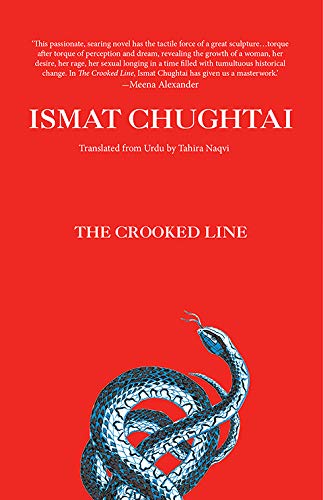
Title: The Crooked Line
Author: Ismat Chugtai (Translated from Urdu by Tahira Naqvi)
Publisher: Speaking Tiger, 2019
Narrating the tale of a lonely child called Shaman, the novel, The Crooked Line, by Ismat Chugtai is considered to be one of her finest works. Written is an extremely poignant and evocative manner, Shaman’s story takes us through her experiences of growing up as a woman in a conservative Muslim family.
Ismat Chugtai is regarded as one of the most rebellious and provocative women writers in Urdu and continues to be a luminary till date. The Crooked Line was originally published in 1945 and was translated into English fifty years later, after it was compared to The Second Sex (1949) by de Beauvoir for its strong portrayal of gender and politics. However, the two books are starkly different in their approach with The Crooked Line being a novel while The Second Sex is a treatise; though it has always been argued that the former could be semi-autobiographical.
“To begin with, her birth was ill-timed.”
These powerful lines announce the arrival of Shaman, the youngest child in a large and affluent family. In a way, they also set the tone for what is yet to arrive in the novel. Everything about Shaman is encapsulated in these lines — ill-timed, ill-mannered and ill-fated. Tracing her journey from her childhood to her old age, this story is beautifully layered with deepest desires, darkest secrets and emotions interwoven with the fragility of human relationships.
Read the full review on Kitaab.